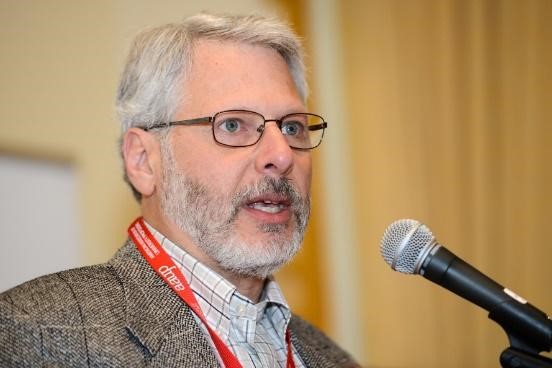The AAUP After the 2016 Election–Letter from Rudy Fichtenbaum, AAUP President
The American Association of University Professors and the AAUP Collective Bargaining Congress have never endorsed or supported a candidate for president of the United States or otherwise engaged in partisan political activity on the national level. For over one hundred years the AAUP has vigilantly defended the professional rights and the academic freedom of all those who teach in higher education, irrespective of their political or other views, popular or unpopular, leftist or rightist. It would be foolish, however, to deny that most college and university faculty members did not support the election of Donald Trump. Many no doubt fear that his election threatens some of the core institutions of our democracy and may be the greatest threat to academic freedom since the McCarthy period.
Certainly, Trump’s campaign has already threatened academic freedom. His remarks about minorities, immigrants, and women have on some campuses had a chilling effect on the rights of students and faculty members to speak out. At some events Trump held on university campuses, students who opposed him said they were harassed or threatened. His call for an “ideological screening test” for admission to the United States could make it difficult for universities to attract students and scholars from other countries and to engage in the international exchange of ideas so vital to academic freedom. In addition, Trump has vowed to appoint Supreme Court justices like Antonin Scalia, who would cripple public employee unions by overturning their established right to collect fees from the nonmembers they must serve. With more than half the faculty now barred from the protections of tenure, unionization may be the only remaining protection for academic freedom available to those instructors. Lastly, Trump’s denial of climate change and, indeed, of the validity of science itself assaults the very core of higher education’s search for knowledge.
But the problems facing higher education today and the growing assault on the professionalism and freedoms of faculty members over the past several decades can hardly be attributed to the results of a single election. Many of these problems stem from ill-conceived policies developed and implemented on a bipartisan basis. As a candidate, Donald Trump did not propound clear and detailed policy proposals for higher education. We therefore urge him and his supporters in the Congress to listen to the voices of all faculty members and other educational leaders and endorse policies aimed at restoring our great higher education system as a common good for all Americans, while protecting the academic freedom and shared governance that made our colleges and universities the envy of the world.
We in the AAUP and AAUP-CBC pledge to redouble our efforts to
• Oppose the privatization of our public higher education system and fight for higher education as a common good, accessible and affordable to all.
• Oppose discrimination on the basis of race, gender, sexual orientation, religion or national origin and fight for an equitable and welcoming educational environment in which all can freely and safely learn, discuss, differ, debate, and grow.
• Oppose attacks on unions and the economic security of college and university faculty and staff and fight for expanding and strengthening the rights of all faculty members– tenure-track, contingent, and graduate employees–to organize and bargain collectively.
• Oppose violations of academic freedom and of the broader rights to free expression in the academic community and fight for strengthened protections for and renewed commitment to the principles of the 1940 Statement of Principles on Academic Freedom and Tenure and the 1966 Statement on Government of Colleges and Universities.
Consider making a donation to the AAUP Foundation now to support the fight for academic freedom.
We recognize that faculty members are divided by discipline, by institutional type, by employment status, as well as by race, religion, gender, and politics. But now is the time for us to unite, organize, and fight, not only for ourselves but for the common good, not only by ourselves but with allies both inside and outside of academia.
The future is still in our hands. There is nothing to be gained and much to be lost from resignation or despair.
Rudy Fichtenbaum, AAUP president
Howard Bunsis, AAUP-CBC chair
Henry Reichman, chair of Committee A on Academic Freedom and Tenure

